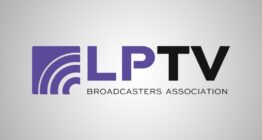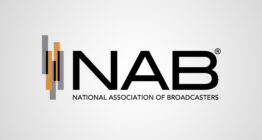Consumer groups oppose NAB’s push for mandatory ATSC 3.0 transition

Weekly insights on the technology, production and business decisions shaping media and broadcast. Free to access. Independent coverage. Unsubscribe anytime.
Consumer advocacy groups and technology manufacturers are opposing broadcasters’ efforts to make the transition to ATSC 3.0 mandatory. They warn that such requirements could increase consumers’ costs while stifling innovation in television technology.
The Consumer Technology Association and Public Knowledge filed a joint letter with the Federal Communications Commission on September 2, opposing a petition from the National Association of Broadcasters that seeks regulatory support for accelerating adoption of the next-generation broadcast standard.
The organizations met with Commissioner Trusty’s office on August 28 to discuss their concerns about NAB’s proposal, which would effectively require all televisions to include ATSC 3.0 tuners to access encrypted broadcast content.
“It would be harmful to consumers to mandate that all televisions add an ATSC 3.0 tuner because of the increased manufacturing cost to implement for all a feature that only some want,” CTA stated in the filing.
CTA’s market research reveals a shifting television landscape that undermines the case for mandatory ATSC 3.0 adoption.
According to the organization’s data, approximately 8% of video content viewers rely on a TV antenna as their only source of video content, with consumers increasingly viewing content across multiple platforms and device types.
CTA conducted a March 2025 analysis of 55-inch, 4K “mini-LED QLED” televisions from a major retailer, finding that models with ATSC 3.0 support averaged $833 compared to $676 for those with only ATSC 1.0 tuners. When excluding high-end models, the price difference remained substantial at $600 versus $520.
Public Knowledge raised broader concerns about the A3SA certification process required for ATSC 3.0 devices, arguing it creates barriers to competition and innovation. The organization warned that the certification model operates without meaningful external oversight, with confidential licensing terms and opaque decision-making processes.
“This private entity, controlled by incumbent broadcasters, would control what devices can use the public airwaves,” the filing stated. “Startups, open-source projects, and academic developers lack the resources to navigate the A3SA certification process, and many will simply be locked out of the ATSC 3.0 ecosystem.”
The groups also highlighted potential standard-essential patent abuse issues, noting that excessive fees or licensing disputes could further limit competition in the television manufacturing market.
Public Knowledge cited the 2005 American Library Association v. FCC case, which limited the commission’s authority to regulate consumer electronics post-transmission. The organization argued that requiring specific technologies to access encrypted broadcast content would effectively dictate television design and capabilities, similar to the broadcast flag regime that courts previously invalidated.
The filing emphasized broadcasting’s traditional social contract, where stations received exclusive spectrum use in exchange for providing free programming while meeting public interest obligations such as localism and emergency alerting.
“Many of the kinds of services that broadcasters seek to provide through ATSC 3.0, such as interactive features, are already available through online streaming platforms, where broadcasters are free to compete on equal terms,” Public Knowledge argued.
CTA has maintained that ATSC 3.0 adoption should remain voluntary, noting that consumer technology companies led development of the ATSC 3.0 standards suite and partnered with broadcasters on the NextGen TV branding.
“If broadcasters are concerned about market demand for ATSC 3.0 tuners, they need to do their part in consumer education and promotion rather than seeking a technology mandate,” CTA stated.
The organizations urged the FCC to deny NAB’s requests, arguing that broadcasters should bear the costs of any transition they seek to benefit from most.






tags
A3SA, Consumer Technology Association, FCC, NAB, NextGen TV ATSC 3.0
categories
Broadcast Business News, Featured, NextGen TV, Policy